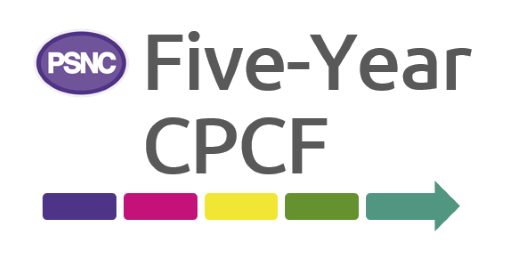First Annual Review of CPCF paves way for year 4 negotiations
The first Annual Review of the progress of the five-year Community Pharmacy Contractual Framework (CPCF) deal has been concluded by PSNC, the Department of Health and Social Care (DHSC) and NHS England & NHS Improvement (NHSE&I).
As part of the five-year deal agreement, all negotiating parties agreed to carry out ‘joint annual reviews of the CPCF in order to ensure and show value for taxpayers and the NHS, and continued progress against the direction of travel set out’.
From PSNC’s perspective, the reviews would give a chance to review costs and capacity within the sector. For DHSC and NHSE&I, it gave a chance to review the value that patients and the NHS are getting from community pharmacy.
The first Annual Review was delayed due to COVID-19 but, at PSNC’s request, work began on it in summer 2021. The review involved some very robust discussions throughout the autumn: some significant differences in opinion emerged between PSNC and the NHS and DHSC, but there were also areas of alignment.
Outcomes of the Annual Review
The review took place separately from, and too late to inform, the comprehensive bid for an uplift to CPCF funding which we had made in time for cross-government talks about the Spending Review. At its November planning meeting, PSNC agreed that more funding would need to be sought again this year, while recognising that the outcome of the Spending Review is likely to prevent any uplift to CPCF funding for the next two financial years.
All parties reviewed a significant amount of data and analysis during the course of the review and this allowed PSNC to demonstrate the scale of the cost and capacity challenges facing community pharmacies. Agreement eventually emerged around a number of key points such as:
- The progress made in transitioning pharmacy towards a service-based agenda;
- The huge efforts and commitment of pharmacy contractors and their teams;
- The need to remain focused on embedding the new pharmacy services;
- The impact of the PQS in increasing the quality of service and strengthening links between pharmacy and other primary care contractors and the NHS;
- The strong performance of the sector throughout the pandemic, including the significant contribution made to patient care by pharmacies remaining open and serving their communities by providing additional funded services outside of the CPCF;
- The decline in pharmacy numbers since April 2019;
- The shift in patient consultations from GP practices and A&E to pharmacy, and the better value that this represents for the taxpayer; and
- The dependency of an expanded service role on action to release pharmacist capacity from existing work, and the fact that potential efficiencies in dispensing as envisaged in the five-year deal have not yet been released.
PSNC raised its serious concerns around the capacity available within community pharmacies in the absence of planned efficiency gains, and about the unsustainable efficiencies that the past two years have required of the sector. PSNC has been clear that without the injection of additional funding, capacity is unlikely to be able to grow, particularly at a time of accelerated pressures on staffing.
PSNC’s Negotiating Team have been pleased to see some of the points raised through the review process already being reflected and picked up in subsequent discussions with DHSC and NHSE&I – the review has helped to set the tone in a useful way for the upcoming Year 4 CPCF negotiations.
Actions
All parties have committed to some actions following the review and progress has already been made on some of these. In particular, all parties have agreed to:
- Recognise the capacity constraints within the sector in the upcoming Year 4 negotiations;
- Explore the scale and impact of the more complex consultations now taking place in community pharmacy – the Pharmacy Advice Audit begins this process;
- Continue and conclude discussions on services fee setting principles; and
- Consider measures for assessing capacity within community pharmacies.
In addition to these joint actions, DHSC are actively pursuing changes to legislation and guidance on VAT with HMT and HMRC to enable better use of skill mix, as well as continuing discussions on regulatory changes. DHSC and NHSE&I are also considering commissioning priorities, and progress has already been made to further incentivise the system to embed community pharmacy services such as the DMS and CPCS. PSNC is considering a case for a walk-in minor illness service which will be discussed in the Year 4 negotiations.
Late last year, PSNC agreed to conclude the Annual Review process following a full Committee discussion. This recognised the progress already being made on some of the agreed next steps, and the agreement on some of the core areas explored, but Committee Members were also disappointed and frustrated that the review had not led to actions which would more immediately address pharmacies’ capacity and cost issues.
PSNC is now preparing for the upcoming Year 4 negotiations. As part of that PSNC is continuing to work to assess the current state of community pharmacies which we believe has significantly worsened since the review was carried out. We look forward to building on this first review in the upcoming negotiations and beyond.
Further information on the CPCF Annual Review
PSNC submitted a significant amount of data to DHSC and NHSE&I as part of the review process. PSNC’s submission included our estimates of the efficiencies being made in the sector; analysis of service levels and capacity in pharmacies; data on walk-ins and pharmacy closures; analysis of current cost pressures (including labour costs) and profitability; and an assessment of the value that pharmacies offer for the NHS.
Based on PSNC’s data and analysis, we have created a briefing which may be helpful to contractors and LPCs in discussions with advocates such as MPs, and which also gives some insight into the PSNC data that was under discussion.
Pharmacy Funding and Capacity Briefing
The process and outputs of the Annual Review are summarised above, but some further information for contractors is also available in our Frequently Asked Questions.
CPCF Annual Review 2021: Frequently Asked Questions
PSNC Comment
 Mike Dent, PSNC Director of Pharmacy Funding, said:
Mike Dent, PSNC Director of Pharmacy Funding, said:
“Perhaps unsurprisingly, this Annual Review process involved some difficult discussions and debate about what the future holds for community pharmacy. While all three negotiating organisations agreed on the phenomenal performance of pharmacies throughout the COVID-19 pandemic and on the value that pharmacies offer, there were mixed views on some other points.
“PSNC put forward data and analysis showing the capacity and cost constraints that pharmacies are facing, and we were pleased to gain agreement for this important context to be considered as we go into the Year 4 negotiations. Our data also provides useful evidence to support ongoing discussions about the extraordinary performance and value of pharmacies, which is helpful. But the review will fall short of contractors’ hopes in that it did not result in any immediate movement in terms of contractor funding levels, and DHSC and NHSE&I have also remained clear throughout that no funding uplift is available for Years 4 and 5 of the CPCF.
“PSNC is now working to build on the outputs of the review in the upcoming Year 4 negotiations: we will be gathering and analysing more data to support our discussions, as well as continuing to highlight the pressures on the sector, and exploring ways to bid again for additional funding over the course of this year.”
 Bharat Patel, PSNC Vice-chair, Negotiating Team Member and an independent contractor said:
Bharat Patel, PSNC Vice-chair, Negotiating Team Member and an independent contractor said:
“As part of the five-year CPCF deal, PSNC fought hard for the inclusion of an Annual Review process. This would give us a chance to make an ongoing case to Government and the NHS about pharmacy costs and capacity, and while a delay was inevitable due to COVID-19, it was disappointing that we had to press for the first review to take place last year.
“PSNC’s Negotiating Team fought hard to turn the review from simply being a progress report into something useful for the sector – we were pleased to get recognition of some of the challenges that pharmacies are facing, and the commitment to consider these as part of our Year 4 negotiations is an important one to which we will hold the other side. Similarly, agreements to take forward work on the increasingly complex consultations now happening in pharmacies, on service fee setting and on regulatory changes are critical for the sector.
“But despite some important wins from the process, we are disappointed that the Annual Review did not lead to immediate and tangible outcomes and improvements for contractors. We remain deeply frustrated by Government’s refusal to agree a much-needed broader funding uplift for the sector, but we are determined to continue to look for better ways forward for the sector throughout 2022 and beyond.”
 Tricia Kennerley, PSNC Negotiating Team Member and VP, Director International Public Affairs at Walgreens Boots Alliance, said:
Tricia Kennerley, PSNC Negotiating Team Member and VP, Director International Public Affairs at Walgreens Boots Alliance, said:
“It was clear at the start of this Annual Review process just how big the gap was between our objectives and those of DHSC and NHSE&I: PSNC wanted to use this as a means to press for further support for the sector, while DHSC and NHSE&I needed to review progress and value for the NHS and taxpayers. After many months of difficult conversations, we have reached a compromise position with constructive ways forward that will be of value to all parties.
“The Negotiating Team has been pleased to see that DHSC and NHSE&I have already taken on board some of the findings of the review process, but note that already much of the analysis PSNC presented is becoming out of date, as the situation for contractors continues to worsen. We have made absolutely clear the immense pressures the sector is facing as well as laying down very strongly the need for additional funding for a walk-in service: this is valuable groundwork as we head into what will be yet another critical round of discussions for the sector, with many contractors simply unable to take on any further services without additional funding, support and access to the right staff.”








